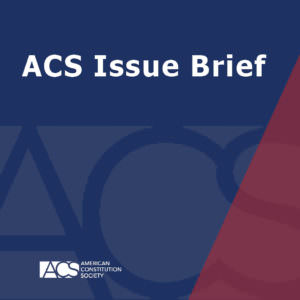Salvaging Civil Rights Claims: How Plausibility Discovery Can Help Restore Federal Court Access After Twombly and Iqbal
Professor of Law, The Catholic University of America, Columbus School of Law
November 10, 2010
 ACS is pleased to distribute “Salvaging Civil Rights Claims: How Plausibility Discovery Can Help Restore Federal Court Access After Twombly and Iqbal,” by Suzette M. Malveaux, an Associate Professor of Law at Catholic University’s Columbus School of Law.
ACS is pleased to distribute “Salvaging Civil Rights Claims: How Plausibility Discovery Can Help Restore Federal Court Access After Twombly and Iqbal,” by Suzette M. Malveaux, an Associate Professor of Law at Catholic University’s Columbus School of Law.
In her Issue Brief, Professor Malveaux discusses the impact of the Supreme Court’s recent decisions in Bell Atlantic Corp. v. Twombly and Ashcroft v. Iqbal on access to federal courts, especially for civil rights plaintiffs. With the “plausibility pleading” standard introduced by these two cases, which has replaced the “notice pleading” standard that has been in use for over a half a century, Professor Malveaux argues that it is more difficult now for any plaintiff to survive a motion to dismiss in federal court. She further contends that this new burden falls more heavily on civil rights plaintiffs and other plaintiffs who face unequal access to the information that is needed for them to plead their case, much of which they used to be able to access from defendants through discovery. There are many changes that are being pursued to address the problems caused by Twombly and Iqbal, including a legislative fix by Congress and an amendment to the Federal Rules of Civil Procedure, but these changes are many months away, at a minimum. In the interim, to avoid an unfair burden upon civil rights claims and to avoid having potentially meritorious claims thrown out of court unjustly, Professor Malveaux proposes the more widespread use of a tool that judges already have and use in other contexts – focused, pre-dismissal discovery. This “plausibility discovery,” as she calls it, is only “a stop gap measure,” but she concludes that “it offers a temporary lifeline for civil rights plaintiffs to get access to the federal courts until a more institutional solution comes along.”
